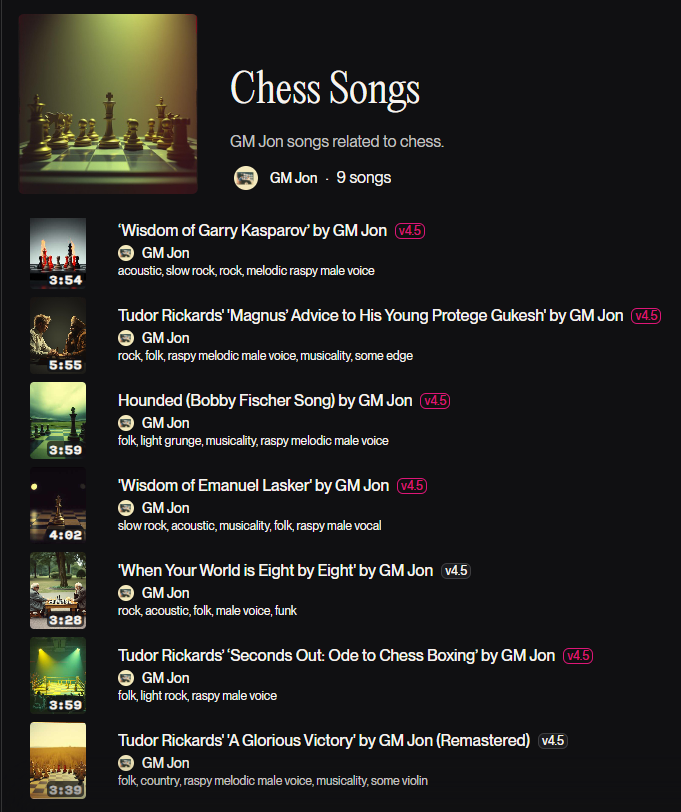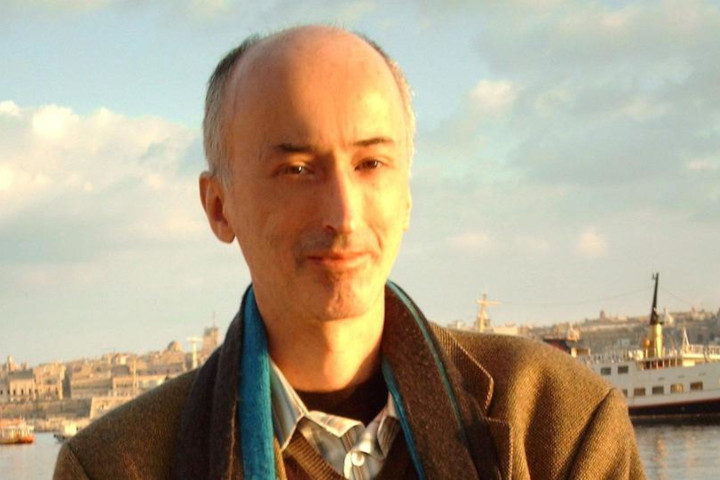Exploring new territory
Grandmaster Jonathan Paul Levitt, known in the chess world for his accomplishments as a player, writer and teacher, has recently taken up a new creative pursuit: writing lyrics for songs. An English grandmaster who studied mathematics at Magdalen College, Oxford between 1982 and 1985, Levitt collected a number of victories over leading contemporaries, including his success at the 2005 Howard Staunton Memorial Tournament, where he beat Jon Speelman in the playoffs.
Beyond competitive chess, he has authored works such as Genius in Chess, a book exploring the possible relationship between intelligence and chess ability.
Levitt was once active in multiple facets of the game: not only as a player but also as a teacher, problem composer and author. Health issues led him to retire from regular tournament play in his forties, though he still engages with chess through online blitz and composition discussions, despite some limitations due to arthritis.
The Modern Defence (1…g6) is more than just a move – it’s a statement. By opting for a fianchetto setup, you embrace unbalanced and strategically rich positions, steering away from predictable theory battles. This approach allows Black to develop along the long diagonal, patiently targeting White’s strong centre instead of directly challenging it. If you‘re looking to play for a full point with Black, this opening is the perfect addition to your repertoire.
Free video sample: Introduction
Free video sample: King’s Indian Links 4.c4 e5 Firouzja vs Carlsen
His musical turn began unexpectedly in recent months. Encouraged by a nightly routine with his wife, Maria, in which they shared poetry before sleep, Levitt tried his hand at writing a poem of his own. What began as a single exercise grew into a broader project, as he discovered he could reshape his verses into lyrics. This process soon resulted in songs dedicated to notable chess figures, including Bobby Fischer and Boris Spassky, capturing the cultural and human sides of the game he has long studied.
At present, Levitt’s profile on the platform Suno features nine chess-related songs, reflecting both his initial experiments and more recent additions. Among them are pieces about Savielly Tartakower, Emanuel Lasker and Garry Kasparov.

Each set of lyrics combines his longstanding passion for chess history with his newer interest in musical expression, forming a creative bridge between two art forms. While the music is new territory for him, the narrative drive and thematic choices clearly stem from his background in chess writing and composition.
For Levitt, this development represents another chapter in a life that has consistently combined intellectual exploration with creativity. Where once his focus lay in the precision of chess problems or the analytical writing of books, it now extends into lyricism and song.
Wisdom of Garry Kasparov
Whenever I’m faced with a difficult path
Her words inspire me: “If not you, who else?”
If you’re already in a fight, you want the first blow to be the last
And you had better be the one to throw it.
Few things are as psychologically brutal as chess.
The highest art of the chessplayer
Lies in not allowing your opponent
To show you what he can do.
You cannot say, ‘Go! Go! Rah! Rah! Good move!’
People want some emotion.
Chess is an art and not a spectator sport.
Chess is mental torture
I used to attack because it was the only thing I knew.
Now I attack because I know it works.
Sometimes the best defence is the best defence.
At the end of the day, it’s all about money.
Somehow, people always forget that it’s much easier
To install a dictator than to remove one
I’ve met enough KGB colonels in my life.
Putin is like Al Capone.
Believe nothing you hear, and only one half that you see
We must decide what we value
And decide what is worth fighting for
And then–the most important part–we must fight for it
The old joke about the two main Soviet papers
Was “There’s no news in the Truth and no truth in the News!”
Every country has its own mafia.
In Russia, the mafia has its own country
This is not chess.
But sometimes things are black and white.
Sometimes you have to fight for what you believe.
Or you lose it.
